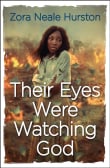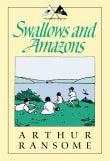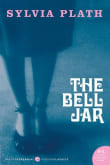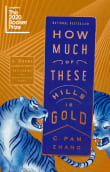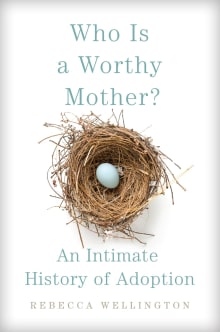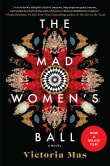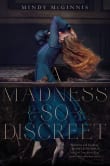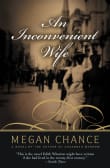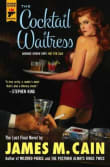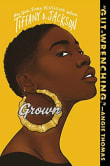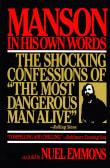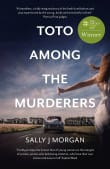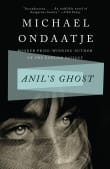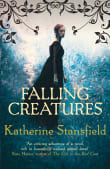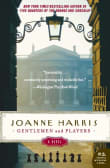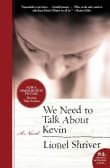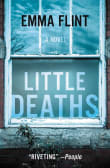Alias Grace
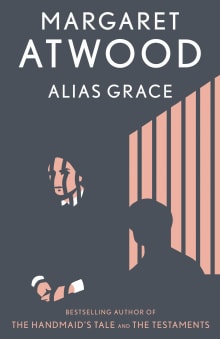
Book description
By the author of The Handmaid's Tale
Now a major NETFLIX series
Sometimes I whisper it over to myself: Murderess. Murderess. It rustles, like a taffeta skirt along the floor.' Grace Marks. Female fiend? Femme fatale? Or weak and unwilling victim? Around the true story of one of the most…
Why read it?
10 authors picked Alias Grace as one of their favorite books. Why do they recommend it?

For me, this is another masterful interweaving of historical fact and wildly creative imagination. It’s a prime example of in-depth research wielded to tangibly ground the reader in the book’s world; you learn about everything from 19th-century psychological theory and forensics to quilt-making and housecleaning techniques.
Part of what I really love about the novel, though, is that unlike in The Handmaid’s Tale, here Atwood deliberately blurs the lines between “good” and “evil” and “victim” and “villain.” Grace isn’t entirely likable, and she’s pretty much entirely unreliable. So, embodying her perspective as a reader is a continual guessing game…
From Jennifer's list on badass madwomen.

This fictionalized account of convict Grace Marks from the 1840s is a heady, thrilling, and intimate portrait of a “bad” woman who remains one of the most unforgettable female characters I have encountered in fiction.
I found it hard not to be drawn into the complexity of Marks’ sensuous, cruel, yet relatable ambitions to escape the hand that fate had dealt her. Alias Grace, for me, is Atwood at her most exquisite and ranks in my top two favorites of the author’s works.
From Karina's list on women who “misbehave”.

Grace Marks was a real Irish-Canadian maid who, in 1840s Ontario, was convicted of murdering her employer. Did she do it? If so, why?
Margaret Atwood uses the lens of interviews with a (fictional) doctor to unpeel Grace’s many layers (or is she only adding lies?). Dreamy, Gothic, and tragic; I loved it. I also loved the miniseries adaptation from Sarah Polley.
From Emily's list on historical fiction with mysteries.
If you love Alias Grace...

Margaret Atwood has got to be my favorite author, so it’s always a joy to read anything by her.
However, I read this book primarily as research (I’m currently working towards a PhD, which looks at biographical novels and the ways authors blend fact and fiction). This novel re-imagines the life of an 18th-century alleged murderess.
What’s fascinating for me is seeing the interplay between historical evidence and the writer’s imagination. Atwood is a wonderful storyteller, and this is a masterclass in how to write compelling bio-fiction. Even if you don’t share my obsession with biographical novels, you’ll love this…

Most of this novel is narrated by Grace Marks, a servant girl who is supposed to have committed a murder but says she doesn’t remember doing it.
She is being interviewed by a psychiatrist who is trying to jog her memory. But is she telling him the truth? I love this use of a possibly unreliable narrator, based on a true story that remains unresolved to this day. It’s a disturbing and compelling read.
From Gill's list on historical novels based on real people.

Atwood’s marvelous historical novel chronicles the 1843 trial of a 16-year-old Canadian girl, Grace Marks. She was tried for murdering her employer and his mistress. Atwood has woven a tale of power and mystery, the pieces sewn together, much as the quilt Grace sews during the narrative.
From Rick's list on true crime that would be criminal not to read.
If you love Margaret Atwood...

When I was a university student, I lived down the street from the shut doors of the Kingston Penitentiary, where the infamous Victorian murderer Grace Marks lived for 15 years. Atwood’s novel opens those heavy doors and invites readers in to make what we will of Grace’s own telling of her story. Is she—or Atwood—reliable? Whose memories matter when looking at guilt? Using fictional characters to explore the historical record of this terrible case, Atwood creates an immersive and compelling look at women’s culpability, craft, violence, and desire.
From Katie's list on characters who assume new names.

Simply the best historical novel that I have ever read. Grace, our anti heroine, is constantly cast into different roles—victim, ingenue, murderess. But who is she really? Atwood captures the fundamental elusiveness and complexity of this fascinating historical figure. This is a book that you will want to crawl inside and live within. I recommend it for a rainy weekend with no other plans, preferably while chain-drinking tea.
From Jessica's list on reimagining women’s lives.

I read this book two weeks ago and have not slept since, ruminating over the true-crime case that is the heart of the mystery. In 1840s Canada, two servants killed their employers and fled wearing their clothes. The maid, Grace, claims she can’t remember the day of the murder and was essentially kidnapped, and in explaining her life story basically mentally obliterates not just the young doctor working on her case but you, dear reader, as well. Is she a manipulative psychopath or an innocent victim, or is something otherworldly at work? Please read it and tell me. There needs…
From Lily's list on with narrators that may or may not be psychopaths.
If you love Alias Grace...

Alias Grace is a suspenseful and fascinating read, especially since it is based on a real person and her true story. Atwood’s book takes you on the journey of both accused and accuser and doesn’t let you get away with an easy answer. It gets complicated when you consider that while early psychologists subjected many women to discriminatory misdiagnoses, other women actually lost their sanity from the abuse of a discriminatory world. Still, others were trapped in situations where insane choices were the only way to survive. That’s when the line between innocence and guilt becomes so thin, only the…
From Stephanie's list on gothic historical fiction on hysteria.
If you love Alias Grace...
Want books like Alias Grace?
Our community of 12,000+ authors has personally recommended 100 books like Alias Grace.





